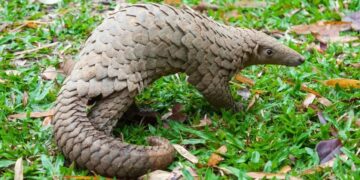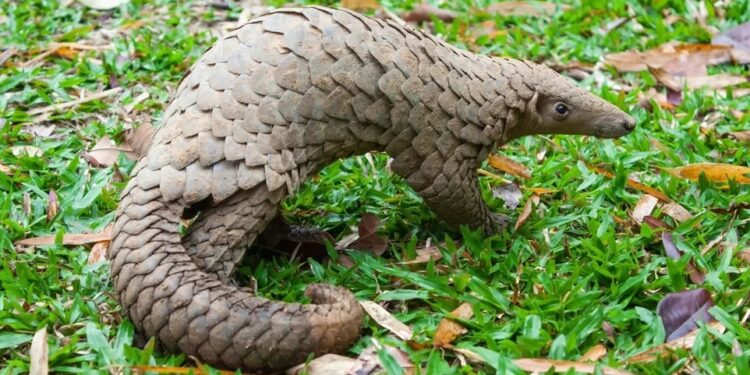By John Ikani
Nigeria has incinerated $1.4 million (£1.2 million) worth of pangolin scales as a bold stance against trafficking, according to officials.
This marks the first public destruction of seized wildlife products in the West African nation.
Pangolins, one of the world’s most trafficked mammals, have scales highly sought after in traditional Chinese medicine.
Their scales are also used for bushmeat, jewellery and decorative items, as well as spiritual purposes.
Trade in pangolin scales is illegal in many countries.
Nigeria serves as a significant transit point for African pangolin scales and other trafficked wildlife products en route to Asia.
Environment Minister Iziaq Adekunle emphasized the significance of the occasion, stating, “The destruction of these seized items is a powerful statement of our resolve to protect our environment, conserve our wildlife, and combat the illegal trade that drives species to the brink of extinction.”
During the event in Abuja, Nigeria’s capital, nearly four tonnes of pangolin scales were destroyed, along with seized leopard, python, and crocodile skins.
These seized items are “the past we leave behind,” as Adekunle pointed out, and their destruction symbolizes “the future we are determined to build for our planet.”
The agency worked in conjunction with the United Nations Office on Drugs and Crime (UNODC) and a pan-African alliance known as the Elephant Protection Initiative to confiscate these scales.
In a significant development, leaders of a global wildlife trafficking gang were convicted in August for smuggling pangolin scales, following a four-year investigation and a trial in Nigeria.
In addition, Nigerian customs officials seized 1,613 tonnes of pangolin scales last year, apprehending 14 individuals, as reported by Nigeria’s Environmental Standards and Regulations Enforcement Agency.
Pangolins are unique among mammals as the only species covered in keratin scales, the same substance found in human fingernails. Four species inhabit Africa, spanning countries in the south, east, and centre of the continent.
Due to their near-extinction in Nigeria, pangolins smuggled from there are likely sourced from other countries, UNODC noted.
Asia is home to the other four pangolin species, although they have been completely wiped out in the vast southeast region of the continent.
Wildlife charity Wild Aid estimates that up to 200,000 pangolins are captured from the wild annually. Their global population remains uncertain, given the challenges in monitoring these shy, nocturnal creatures.
UNODC data reveals a tenfold increase in pangolin scale seizures between 2014 and 2018.



































